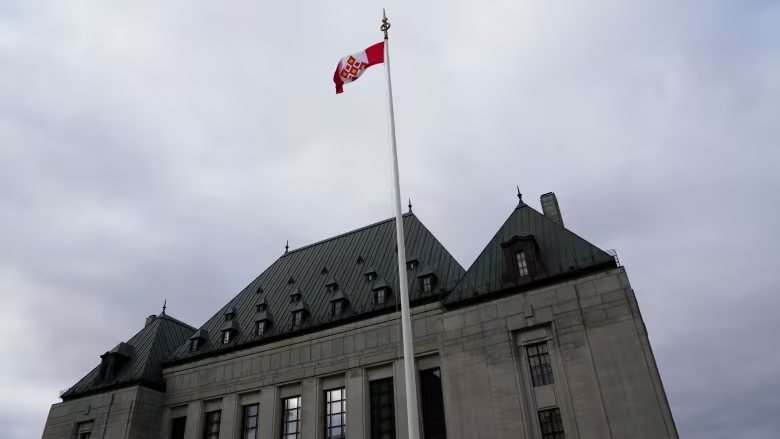In an unanimous decision, the Supreme Court of Canada ruled Friday that the Safe Third Country Agreement (STCA) between Canada and the United States is constitutional, at least in part — a legal victory for the federal government as it seeks to continue the practice of returning refugees who have tried to cross into this country from the U.S.
The STCA, a bilateral deal first signed in 2004, recognizes both Canada and the U.S. as “safe” countries for migrants and states that refugee claimants are required to request asylum in the first country where they arrive.
Under this agreement, refugee claimants arriving at an official land port of entry to Canada from the U.S. are deemed ineligible for refugee protection.
Canadian government lawyers have defended the law, saying the U.S. is a democracy with a well-functioning immigration system that respects international law.
Refugee advocacy groups by comparison have argued in court that the policy is unconstitutional.
They said deeming the U.S. a safe country violates Section 7 of the Charter of Rights and Freedoms — which protects an individual’s right to life, liberty and security of the person — because officers indiscriminately return refugees to the U.S. without considering a claimant’s safety and the state of U.S. facilities.
Groups including the Canadian Council for Refugees, the Canadian Council of Churches and Amnesty International told the top court in an October hearing that claimants who are returned to the U.S. are automatically detained, treated poorly and sometimes face deportation.
They claimed U.S. detention centres may run afoul with international law because there have been reports of inadequate medical care, cold temperatures and staff who do not respect religious dietary restrictions.
The judges rejected those arguments. Justice Nicholas Kasirer, writing for the court, dismissed the appeal and the Section 7 claims, saying there are “safety valves” in the agreement that “are sufficient to ensure that no deprivations contrary to the principles of fundamental justice occur.”
Kasirer wrote that the agreement accords with the Charter because, under the STCA, there are exemptions that would allow some refugee claimants to stay in Canada.
The court said failed claimants have access to “curative measures,” including temporary resident permits, humanitarian and compassionate exemptions, public policy exemptions and “administrative deferrals of removal,” a measure that allows Canada to temporarily defer removals if there’s a humanitarian crisis.
“While the record shows that returnees face a risk of detention in the United States, it also discloses mechanisms that create opportunities for release and provide for review by administrative decision-makers and courts. There is no basis to infer that these arrangements are fundamentally unfair. Thus, the risk of detention that returnees face is not overbroad,” Kasirer wrote.
“The legislation is tailored to prevent certain infringements of Sec. 7 interests and, importantly for present purposes, survives constitutional scrutiny here because legislative safety valves provide curative relief.”
Case sent back to lower court
However, the court signalled it may be sympathetic to refugee groups that claim the policy is a violation of Section 15 of the Charter, the section that guarantees equality under the law.
Refugee groups had argued the U.S. often denies refugee claims that cite gender-based violence as the reason for a claim.
Kasirer ordered the case back to Federal Court for a review of the policy in light of equality concerns.
The Federal Court initially agreed with the refugee groups — finding the deal unconstitutional
The government appealed that ruling to the Federal Court of Appeal who then reversed course, allowing the deal to stand.
That prompted refugee groups to take the case to Canada’s final court of appeal, which decided Friday that the existing agreement can be “tolerated.”
Because the Federal Court did not initially consider Section 15 and equality rights when deciding the agreement is unconstitutional — it invalidated the policy on Section 7 and security of person grounds alone — Kasirer said the lower court must re-evaluate the policy given serious claims about how the U.S. treats women migrants fleeing violence.
Closing the loophole
The steady flow of migrants into Canada has been a hot political issue in recent years, particularly in Quebec where some shelters are grappling with a surge of refugees.
The STCA, as originally written, did not apply at unofficial crossings like Roxham Road near Lacolle, Que.
That led thousands of migrants to use these so-called “irregular border crossings” to enter Canada and apply for protection — effectively dodging STCA provisions that block most Canada-bound refugees coming from the U.S.
Prime Minister Justin Trudeau and U.S. President Joe Biden expanded the pact in March to cover the entire land border, closing the loophole.
The result has been an immediate drop in the number of border-crossing refugee claimants.
The court did not consider the STCA expansion in its Friday ruling.
Justice Russell Brown, who heard the case last October, resigned this week and did not participate in the final ruling which is styled as Canadian Council of Refugees vs. Canada.
Source : CBC


